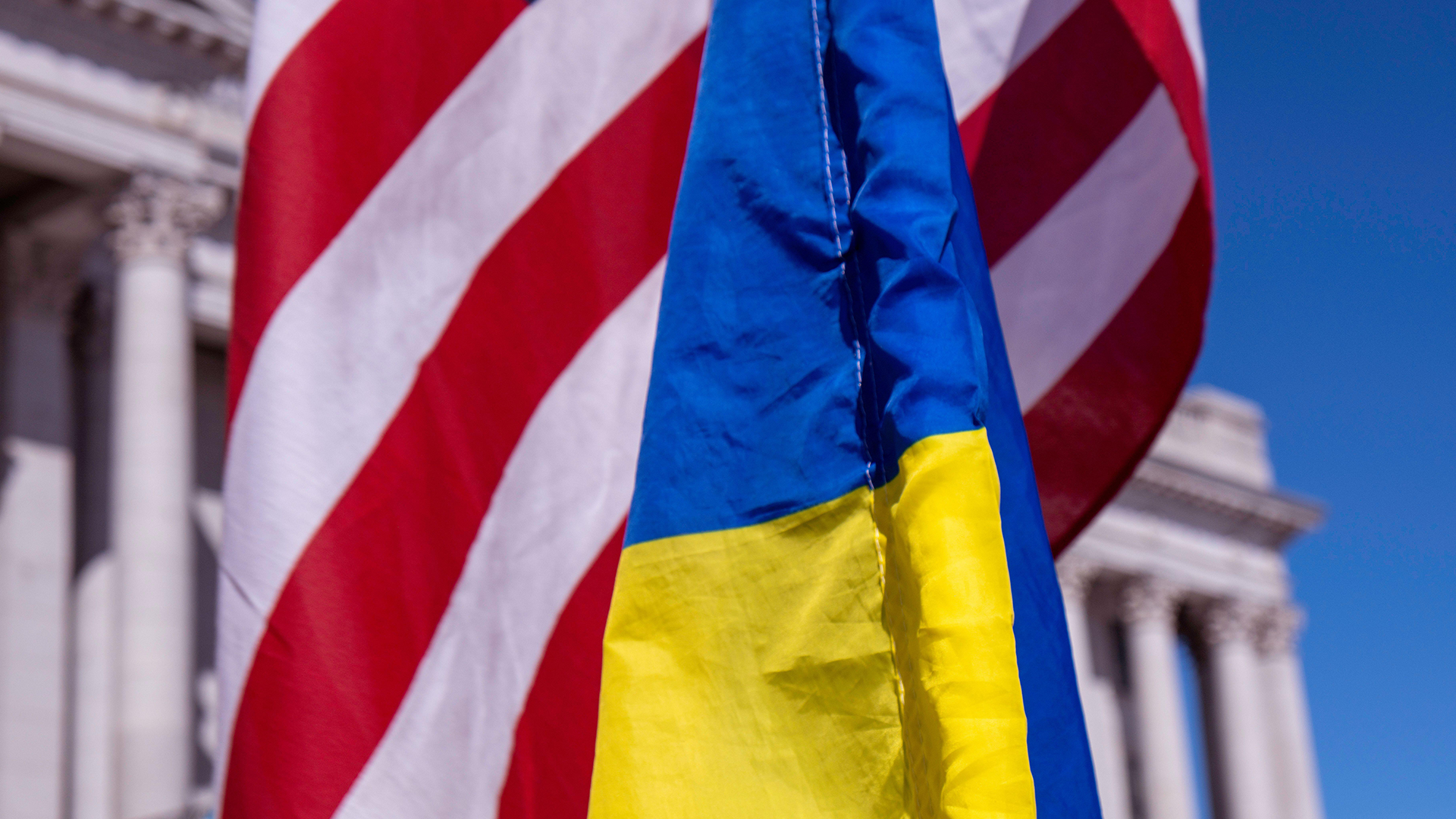
US House approves $61bn in military aid to Ukraine after months of delay

After months of delay, the House of Representatives has finally approved billions of dollars of US military aid for Ukraine.
The measure passed by 311 votes to 112, and was received by applause with some representatives waving Ukrainian flags.
The deal – which now needs the approval of the Senate – will see Ukraine receive $61bn (£49bn) in military aid, with a third of the package going towards weapons and ammunition.
- Russian bomber crash: Technical malfunction or shot down in mid-air by Ukrainians?
- Russian warships resupplying further from frontline amid Ukrainian attacks
- Threat from the sky: Why Ukrainian and Israeli airspace can't be defended the same way
Ukrainian President Volodymir Zelensky said the aid would "keep the war from expanding, save thousands and thousands of lives and help both of our nations to become stronger".
Defence Secretary Grant Shapps called it an "important moment in the battle for freedom".
The timely provision of military aid is crucial as Ukraine's arsenal has been depleting amid the full-scale invasion, now having entered its third year.
Ukraine relies heavily on foreign weapons, training and equipment.
Commenting on the passing of the national security supplement, US Secretary of Defense Lloyd J Austin said: " We must never give our friends, our rivals or our foes any reason to doubt America's resolve."
The Pentagon said that once the green light is given it could rapidly deliver military aid to Ukraine.
"We have a very robust logistics network that enables us to move material very quickly; as we've done in the past, we can move within days," said Pentagon press secretary Major General Pat Ryder.
President Joe Biden urged the Senate for quick approval "so that I can sign it into law and we can quickly send weapons and equipment to Ukraine to meet their urgent battlefield needs".
The funding amounts to $95bn in total. It was split into sections, with Congress having voted separately on each one.
Ukraine will see roughly $61bn of the total pot, with $26bn going to Israel and $8bn for US allies in the Indo-Pacific region, including Taiwan.
Another $9bn will go towards humanitarian assistance for civilians in war zones, such as Haiti, Sudan and Gaza.







